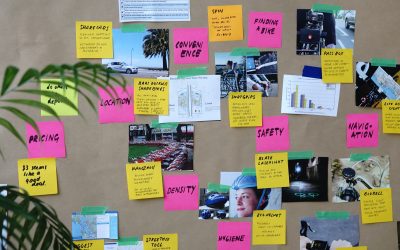While there are a number of questions you should be prepared to answer for your job interview, there are some that can prove trickier than others. One of those is: “What can you bring to the role?”
You might be scratching your head thinking, “me?” but of course, an employer is looking for so much more than just liking your personality at interview stage.
To be able to answer this question, you must be able to deliver a solid answer regarding your skillset, personality and capability to do the job. You should also look to showcase your knowledge of the role. Most importantly, tell them why you deserve this job over others. Why are you so special?
Below, we’ve provided a few examples and tips to help you prepare for this question – answered correctly it could open the door to your career.
Oh, and don’t forget to take a look at this video for a few tips and examples too!
How to prepare
First thing’s first. You should ask yourself the following questions:
-
What skills and experience do you bring to the role? Are there specific skills and abilities that make you an ideal candidate for the role?
-
What makes you different? Do you have unique skills or specific skills that other candidates don’t have?
-
How can your unique skills make a difference in the role? What is it about you that will enable you to make a difference if you are chosen for the role?
-
How can you add value to the role? What added value can you bring to the role that is currently missing?
Once you have the answers to the above, you’ll have a better idea of how you could answer the question, and you’re ready to move on to doing some research on the company:
Do your research:
Once you’ve found out you have been invited to an interview, the next stage is to begin preparing for your dream job. The best place to begin researching is to look at the job description and the company’s website. This will help you build a foundation for your answer. Having a background about the company helps you to see what values etc. are important to them. Reading the job description gives you an idea of the type of person they are looking for, as well as what responsibilities they will expect you to manage if you are successful.
Pick out the most important skills from the job description – these will be the main points you’ll make in response to “What can you bring to the role?”. By understanding the values the company has, you can use them in your answer while making your points based on your skillset too. For example:
“I saw from your website that you value quality in your staff. This value sits really well with me, because I take alot of pride in the work I produce, and see to it that quality control is my own personal responsibility – it’s a quality that has allowed me to produce effective, impactful marketing resources and messages.”
Give examples:
As you can see above, this individual provided a value that she knew was important to the company, and paired this with a skill she knows will impress the employer. Providing examples in this way helps the interviewer to see how you would apply the values most important to them.
Back yourself up:
Because this will likely be just one question from the interview, you won’t need to spend too long answering it. While it is a vital question, you should be able to pick out the most important points from your research and develop an answer that highlights just a couple of areas. Three key attributes for example, would be appropriate. Each of these should be central to the job, and you should prepare examples to present with them. You should only need to talk about one or two of these attributes, but it’s always good to have a couple of extras prepared, just in case they want you to expand.
The following examples should guide you towards what can be deemed a solid answer to “What can you bring to the role?”:
Time/project management
“My previous experience as an email marketing executive has showed me how important it is to plan ahead and stick to strict deadlines throughout the working day. I’m more than comfortable working on several projects simultaneously, while meeting deadlines set.
“For example, I had to ensure I did not fall behind on my administrative duties during busy periods, like Christmas, or Easter. I found that by creating a to-do list for the week, split out per day, it helped me to stay on top of some of the smaller, easier to forget tasks, while still making sure the priority tasks were completed, with enough time to proof. I would also make notes next to each task which helped to speed up my efficiency when leaving and returning to those tasks.”
This is a great example because the individual discusses the challenges they face in the role, and how they overcame it. The detail of the example shows how they took what would have been a very busy time and made it work for them, while also meeting expectations of their client.
Teamwork
“I noticed that this role places a particular emphasis on teamwork, a value I carry very close to my heart. I’ve always been a firm believer that two heads are better than one, and I love being part of a team. During my time at X as a senior marketing executive, we regularly participated in team brainstorming meetings to agree and work on larger projects e.g. website relaunch, seasonal campaigns. More than five members of our wider team did not work in the same office as us, so ensuring the success of the project meant we had to communicate effectively via Skype, or Google Hangouts, as a group. This extra level of communication added to our team dynamic, despite us hardly ever working in the same place.”
This candidate has explained clearly why they would be an effective team player. Communication skills were clearly required in his previous role, so this is a great example to go for. The example they have chosen demonstrates that they understand the essentials of good teamwork, which is the ability to clearly and effectively communicate with one another.
Hopefully the above examples give you a rough idea of the sort of length your question should be, and show how great examples can make your answers much more effective. As long as you do your research, you’ll be able to come up with great answers that are clear and succinct.
Thinking about applying for jobs? Get some help with your CV with our helpful guide for marketeers:
Not working
The ultimate marketing job interview guide
When recruiting for marketing roles the interview panel will, first and foremost, be looking for strong communication skills and a quick, inventive mind
Ten ways to improve your marketing CV
It goes without saying that a brilliant CV will be your ticket to an interview and your dream marketing job. All the advice from job-hunting experts says spend plenty of time getting your resume right. Don’t be sloppy, and in the ever-competitive world of marketing, try as hard as you can to make yourself stand out from the crowd.
Five tips for complying with the new EU Cookie Law
EMEA marketers are scratching their heads, wondering how to go about compliance with the EU Privacy Directive that officially became law in the United Kingdom on 25 May 2012. The directive mandates that all companies marketing into the UK obtain consent from website visitors in order to store and retrieve usage information from their computers.
Shell leads FTSE 100 in digital marketing
Shell has landed the top spot in a survey of the UK’s most digitally connected corporate brands in the FTSE 100. For marketing professionals, Shell’s digital marketing strategy can be used as a benchmark for good practice in the industry, say experts. Other high-scoring brands include Kingfisher, SABMiller, Aviva, and Unilever so observing how they use the various channels for digital marketing will be helpful to marketers.
Five ways to stay motivated during your marketing job search
We all begin to feel frustrated when the search for a new job drags on. It’s worth remembering that very few people are successful with every job application they make. The trick for marketing professionals in today’s tough economic climate is to try and learn something from each failed job application, take it on the chin, and move on. Here are five tips on how to stick with it, as you search for your perfect marketing role:
Why your next marketing recruit should have creativity at their heart
It is the yin and yang of marketing. One of the raging debates in the field is that of the relative importance of the big-ideas creative versus the data analyst and technician. Which is more important? The ideas and content creator, or the...







